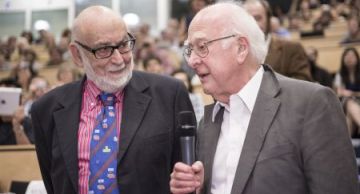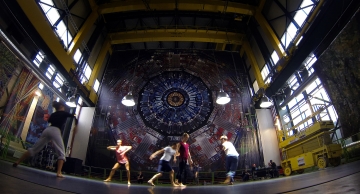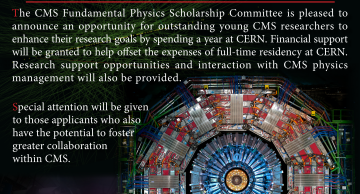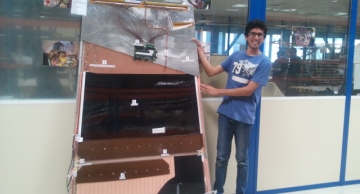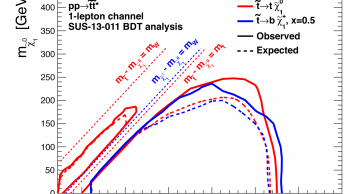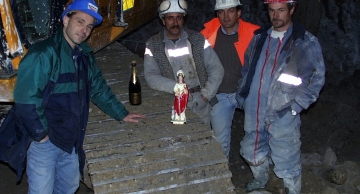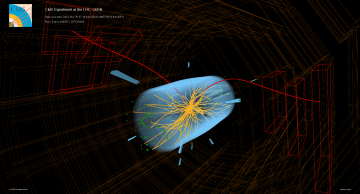From the desk of the CB Chairperson
We have been receiving quite a few emails asking when the CB Newsletter would reappear. Finally we are resuming service. There have been CB meetings in DESY and CERN as well as in Taipei since our last newsletter…
News
|
Anonymous |
Collaboration
On 8 October, the 2013 Nobel Prize in physics was awarded to Professors Francois Englert and Peter Higgs “for the theoretical discovery of a mechanism that contributes to our understanding of the origin of mass of subatomic particles, and which…
|
afinkel |
Collaboration
One otherwise unremarkable day, the meeting of the CMS group at the University of Minnesota Physics Department took an unexpected, yet not entirely uncommon, detour to the pages of the web. This particular detour had brought us to the delightful…
|
eno |
Collaboration
The CMS Collaboration Board career committee and the LPC management are pleased to announce that there will be a panel discussion on careers in Industry, which will be held at the LPC at FNAL in Chicago on 13 Nov 2013, between 18:00 and 20:00.…
|
Anonymous |
Collaboration
Guido Tonelli, CMS Spokesperson during 2010–2011, was awarded the prestigious Enrico Fermi Prize of the Italian Physics Society, along with other LHC scientists from Italy.
The prize was established in 2001 to commemorate Fermi on the occasion of…
|
Anonymous |
Engage with CMS
Collide @ CERN and Swiss choreographer Gilles Jobin are working in collaboration with the CMS experiment at CERN, which is hosting the world première of their new performance piece, QUANTUM, in September. This is Jobin's latest choreographic…
|
achintya |
Collaboration
Being a young researcher in a collaboration the size of CMS can be daunting, and requiring to move to CERN even more so. A new scholarship has been set up with the aim of supporting master's students, PhD researchers or post-docs of the CMS…
|
achintya |
Collaboration
Mihir Khanna, from the Dhirubhai Ambani International School in Mumbai, India, was one of hundreds of high-school interns who come to CERN each year. He recounts his once-in-a-lifetime experience below.
Near the foothills of the Alps, a short…
|
vimartin |
Physics
CMS presented new results of searches for signatures of supersymmetry (SUSY) at the LHCP conference held in Barcelona, Spain in May and at the EPSHEP conference held in Stockholm, Sweden in July. These results use either the full 20 fb–1 of data…
|
achintya |
Collaboration
Despite the violent nature of the particle collisions that take place inside the CMS detector, the cathedral-sized cavern in which it sits thirty storeys underground exudes a certain peaceful calm. This is all the more true during the ongoing period…
|
achintya |
Physics
CMS Experiment, CERN
25 July 2013
UPDATE: Last Friday, CMS and LHCb reported their individual results for the decay of Bs mesons into pairs of muons (see CMS results below). Yesterday, both collaborations jointly presented a preliminary combination…
|
ptraczyk |
Engage with CMS
The CMS Guitar has already visited Point 5 in the past but this was her first time underground, with the detector itself. And not only did we take her down, Google Science Fair winner Jonah Kohn and I had an actual jam session in the experimental…

